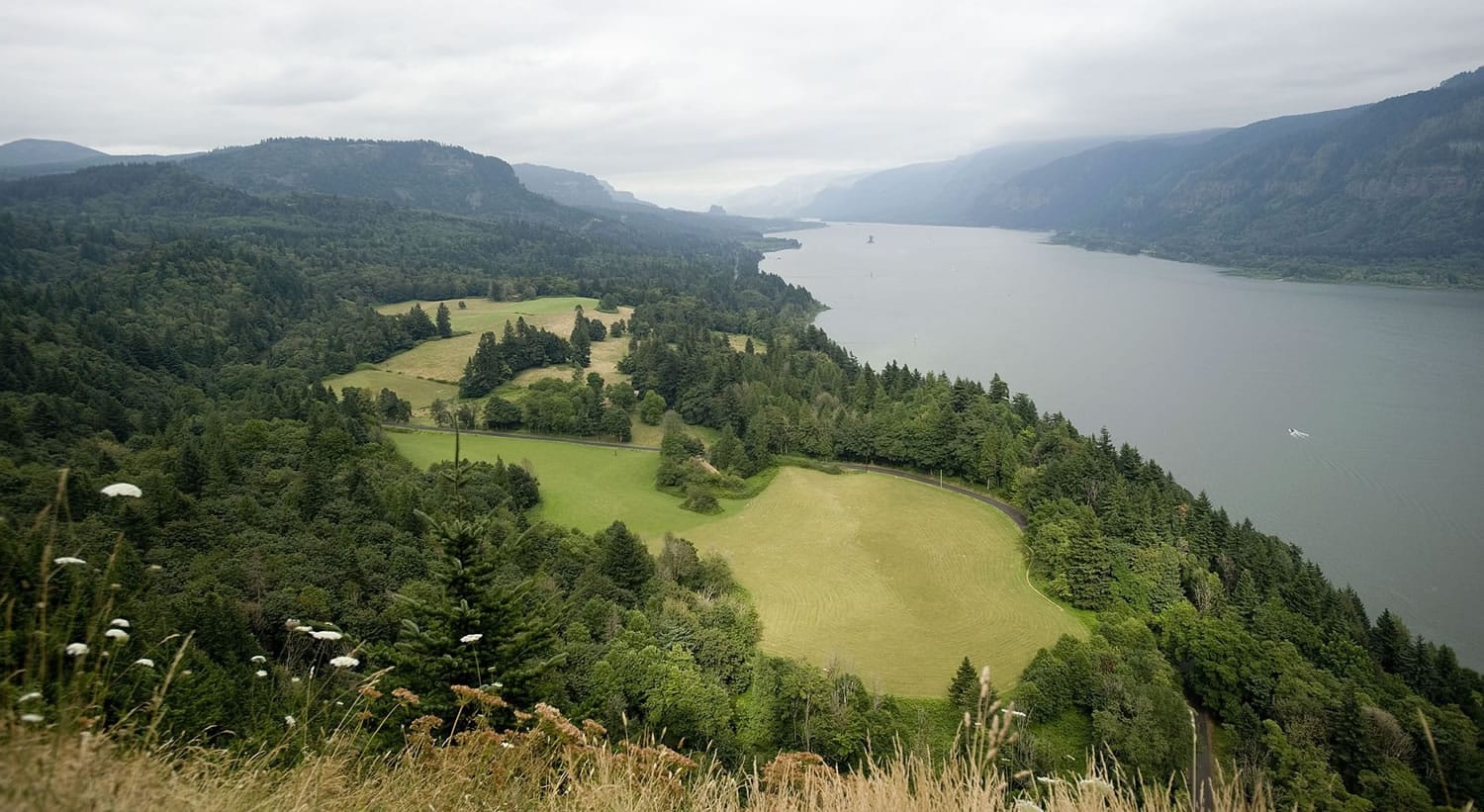Chinook Trails
Friends of the Columbia Gorge
Columbia River Gorge trails advocates gathered Sunday to discuss their newest vision: Trails that connect existing urban areas to undeveloped parcels in order to provide both economic development and new access to the region’s unparalleled scenic beauty.
“This is a vision that has a lot of potential,” said Renee Tkach, project manager for the group Friends of the Columbia Gorge. She spoke at the annual meeting of the Chinook Trail Association, a group dedicated to building and maintaining hiking trails in the Gorge and elsewhere.
It’s a long-range vision combined with some short-term projects, she explained. Trails advocates would someday like to see a 300-mile trail along the rim of the Gorge from Vancouver Lake to the Highway 97 bridge near Biggs, Ore. But before that can happen, a lot of smaller projects will be undertaken.
That’s where the Friends’ current “Gorge Towns to Trails” project comes in. Modeled somewhat on the European system where trails link urban centers, the group envisions Gorge visitors being able to drive to a city and then walk into the Gorge, return to town and bolster the local economy by spending some money.
Tkach, who lives in the Cape Horn area, said the Towns to Trails project currently has three phases, each in various stages of development.
• The closest to Vancouver is the Washougal-Stevenson segment. The current situation is this: About 90 percent of the proposed route of the 34-mile trail would cross public land, but the remaining 10 percent is private property, which will require money to buy the property or acquire an easement. Advocates have formed a foundation to solicit the money and will launch a fundraising campaign. They have been working with business and economic development officials in Skamania County, as well as with the Forest Service and others. A portion of trail exists near Cape Horn, where the Friends group last year celebrated the completion of a new overlook on what was once intended as a housing subdivision, and it would also run through Beacon Rock State Park.
Tkach said the Washougal end of the trail could start at the Steigerwald National Wildlife Refuge just east of town. Already, there is a trail there atop the Columbia River dike, but it ends at a chain link fence at the end of the government’s property. Running east, it could provide easy access to Cedar Falls near North Bonneville — the property is now mostly hidden from the public — and connect to Skamania Lodge and other Gorge businesses.
• The second Towns to Trails segment is also along the Washington side of the Gorge near the town of Lyle, in Klickitat County. There the Friends group owns a 550-acre parcel called the Lyle Cherry Orchard.
“Lyle Cherry Orchard offers amazing open vistas and landscapes,” said Tkach. There is currently a trail on the property that begins along Highway 14, but the proposal is to build a new six-mile segment on the Friends’ land that would lead to a new trail head in the town of Lyle. The group is now in discussions with Lyle leaders about the idea — a local proposal is to locate a trail head at the high school — and work could begin there relatively soon.
• The third project is the most advanced. Envisioned to connect Hood River and The Dalles in Oregon, work began last year on a 15-mile trail near the town of Mosier, which already had a trail connection with Hood River to the west. The new segment joins an existing trail in Mosier’s Pocket Park, then crosses a small portion of private land and back into publicly owned land. The new trail, which is on a plateau above the river, is expected to be certified as meeting the Americans with Disabilities Act standards. Work will continue this spring.
Eventually it will connect it back to the Historic Columbia River Highway, which in the Mosier area has been restored and dedicated to foot and bicycle traffic. The trail is envisioned to end at the Columbia Gorge Discovery Center west of The Dalles. Tkach said that it’s hoped the final land acquisitions and easements connecting Mosier to The Dalles can be secured this year.
Although some of the projects, particularly the 300-mile loop trail, may be years away from completion, hikers know that all journeys begin with small steps.
Craig Brown: 360-735-4515; craig.brown@columbian.com.




